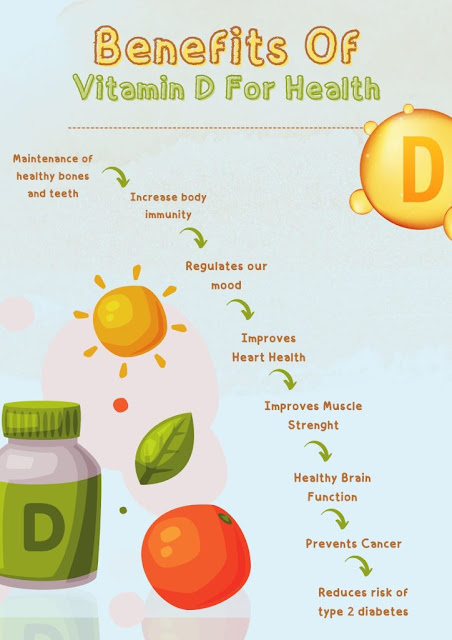Potential Health Benefits of Vitamin D3
#Vitamin D3: Potential Health Benefits#
Vitamin D3, or cholecalciferol as it is also called, is a fat soluble vitamin. Vitamin D3 is best known for its bone-health benefits, but research has revealed that adequate vitamin D3 levels can have a variety of other health benefits. These benefits go beyond maintaining strong bones, including effects on the immune system, heart health and mental health.
Vitamin D3's most well-known role is in calcium absorption. It also helps maintain bone health. Vitamin D3 helps calcium to absorb in the intestines. This ensures that there is enough calcium in the bloodstream for it to be deposited into the bones. Without it, the body will not be able to absorb enough calcium in the diet. This can lead to a decrease in bone mineral density as well as an increased risk of osteoporosis and fractures. It is particularly important for older adults as they are more prone to fractures and decreased bone density.
#Immune System Support#
Vitamin D3's role in supporting immunity is becoming increasingly well-known. It helps the body fight off infections and disease by regulating innate and adaptive immunity. According to studies, individuals who have adequate vitamin D3 levels are less susceptible to respiratory infections such as flu and the common cold. This is especially relevant when seasonal changes occur, as reduced sun exposure can lower vitamin D3 levels.
#Immune System Support#
Vitamin D3's role in supporting immunity is becoming increasingly well-known. It helps the body fight off infections and disease by regulating innate and adaptive immunity. According to studies, individuals who have adequate vitamin D3 levels are less susceptible to respiratory infections such as flu and the common cold. This is especially relevant when seasonal changes occur, as reduced sun exposure can lower vitamin D3 levels.
Research suggests that vitamin D3 can also reduce the risk of autoimmune disorders, including multiple sclerosis (MS), rheumatoid arthritis, and type 1 diabetic. These conditions occur when the immune system attacks body tissues by mistake. Vitamin D3 regulates the immune response and may reduce the risk of autoimmune reactions.Recent evidence suggests that vitamin D3 could contribute to heart health. A number of studies have linked low vitamin D3 levels to increased cardiovascular disease risk, such as high blood pressure and heart attacks. Vitamin D3 may exert its protective effect on the cardiovascular system via several mechanisms. For example, it may help control blood pressure by affecting the renin-angiotensin-aldosterone system, which regulates blood pressure and fluid balance.
Vitamin D3 also has anti-inflammatory qualities that can reduce chronic inflammation. Chronic inflammation is a major factor in the development of atherosclerosis, or hardening of arteries. Vitamin D3 can reduce inflammation and therefore the risk of plaque accumulation in the arteries..
#Mental Health and Cognitive Function#

Vitamin D3 also has anti-inflammatory qualities that can reduce chronic inflammation. Chronic inflammation is a major factor in the development of atherosclerosis, or hardening of arteries. Vitamin D3 can reduce inflammation and therefore the risk of plaque accumulation in the arteries..
#Mental Health and Cognitive Function#

Vitamin D3 may also have a positive impact on cognitive and mental function. A growing body of evidence suggests that adequate vitamin D3 levels are linked to a lower risk of depression and mood disorders. It is thought that vitamin D3 influences the production of neurotransmitters, such as serotonin. Low vitamin D3 levels have been associated with an increased risk of depression in people who suffer from seasonal effect disorder (SAD).
Vitamin D3 could also play a part in maintaining our cognitive function. Some studies suggest that low vitamin D3 levels are linked to an increased risk for cognitive decline, dementia and Alzheimer's. Although the exact mechanisms of vitamin D3 are not understood, the anti-inflammatory effects and neuroprotective properties may contribute to brain health.
#Cancer Prevention#
Research has focused on the potential role that vitamin D3 can play in cancer prevention. Some studies suggest that adequate vitamin D3 levels may be linked to a lower risk of certain cancers, such as colorectal cancer, breast cancer, and prostate carcinoma. Vitamin D3 may exert its protective effect by regulating the growth and differentiation of cells, reducing cancer cell spread, and promoting programmed cell death in abnormal cells.
#Cancer Prevention#
Research has focused on the potential role that vitamin D3 can play in cancer prevention. Some studies suggest that adequate vitamin D3 levels may be linked to a lower risk of certain cancers, such as colorectal cancer, breast cancer, and prostate carcinoma. Vitamin D3 may exert its protective effect by regulating the growth and differentiation of cells, reducing cancer cell spread, and promoting programmed cell death in abnormal cells.
Vitamin D3 modulating the immune system could also be a factor in cancer prevention. It enhances the ability of the body to identify cancer cells and destroys them before they become full-blown tumours. While the evidence is encouraging, further research is required to establish a definitive connection between vitamin D3 prevention and cancer.Vitamin D3 can also help maintain metabolic health, reducing the risk for type 2 diabetes.
Click here more site>>>>>>Enjoy in gurugram


.jpg)


Comments
Post a Comment